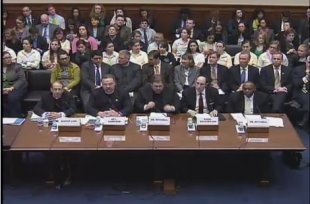This is part of a series of articles intended to illustrate the usefulness of treating atheism as a social justice issue, rather than trying to wall atheist discourse off from social justice discussions. Read the introductory post here. Read the second post here. Read the third post here. Read the fourth post here.
What I hope we have seen from the previous examples is that, in the exact same way that race ‘intersects’ with LGBT issues, or that class ‘intersects’ with gender issues, religion is tied up in other so-called ‘social justice’ topics. Insofar as no social justice issue can truly be well understood without an appreciation for the differential ways they impact other groups, it is impossible to understand and intelligently critique religion without first learning to identify and analyze the other elements that ‘intersect’ it.
I certainly cannot speak on behalf of all atheists – perhaps there are indeed people who enjoy talking about their non-belief with the same rough intent as people who collect stamps or build ships in bottles. They may not care at all about what other people believe, so long as they are allowed to pursue their atheism hobby unmolested. If such people exist, I have not come across them – although I consequently wouldn’t, so maybe that’s a Catch-22. My experience of organized atheism, and of the far-less-organized world of online atheism, is that atheists believe passionately in secular government and that religion deserves public criticism. It is to these atheists that this series is addressed. [Read more…]

